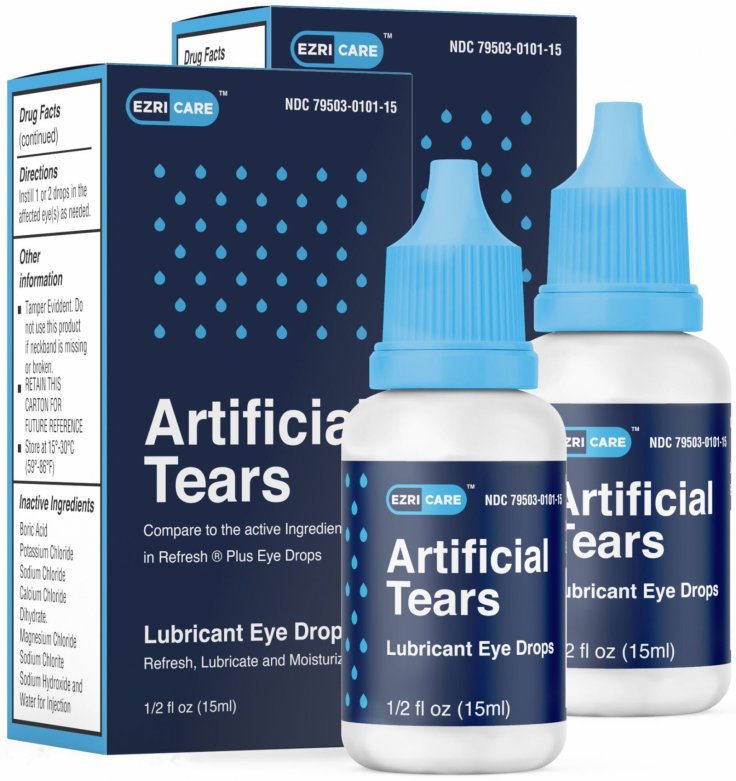The US Centers for Disease Control and Prevention has urged consumers and health care providers not to use EzriCare Artificial Tears as one person died and three others have been left with permanent vision loss. It is conducting an investigation into at least 50 infections in 11 states.
On January 20, the CDC in a statement had said that majority of those affected reported using preservative-free EzriCare Artificial Tears before becoming ill.
Despite the infections not being definitively traced to the eyedrops, the CDC recommended patients to immediately discontinue the use of the said eye drops until the epidemiological investigation and laboratory analyzes are complete.

Bacteria Resistant to Antibiotics
So far, Pseudomonas aeruginosa bacteria have been identified on open EzriCare bottles. This bacteria is resistant to carbapenem antibiotics and antibiotics ceftazidime and cefepime.
The CDC said Pseudomonas bacteria are common in the environment, found in the soil and water. "Pseudomonas aeruginosa is usually spread in health care settings and is increasingly difficult to treat because of antibiotic resistance. It caused more than 32,000 infections in hospitalized patients and about 2,700 deaths in the US in 2017."
The CDC team has identified cases with Pseudomonas aeruginosa in California, Colorado, Florida, Connecticut, New Mexico, New Jersey, Nevada, New York, Utah, Texas and Washington.
Infected Patients
11 patients have developed eye infections, and at least three have been blinded in one eye. Others reported having respiratory infections or urinary tract infections. One person died when the bacterium entered their bloodstream.

However, it is unclear whether the affected patients had underlying eye conditions, like glaucoma or cataracts that would have made them more susceptible. Experts said symptoms of an eye infection include pain, swelling, discharge, redness, blurry vision, sensitivity to light and the feeling of some kind of foreign object stuck in the eye.
The CDC found Pseudomonas aeruginosa bacteria, which is often resistant to standard antibiotics, in bottles of the eyedrops. It is testing to determine whether the bacteria matches the strain found in patients.
Meanwhile, EzriCare in a statement on January 24 had said it has not received any consumer complaints or adverse event reports. "We have not be asked to conduct a recall." But the company said in an abundance of caution, patients should discontinue use of any portions of EzriCare Artificial Tears Lubricant Eye Drops until further notice.









